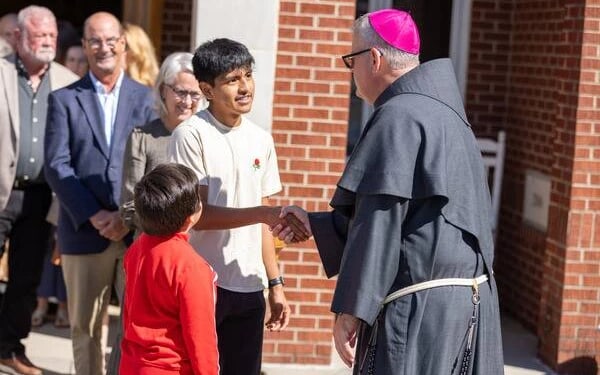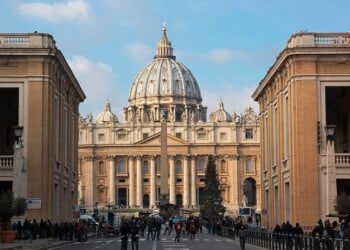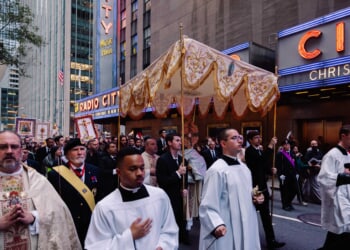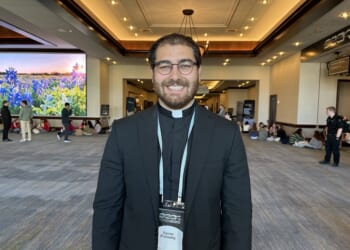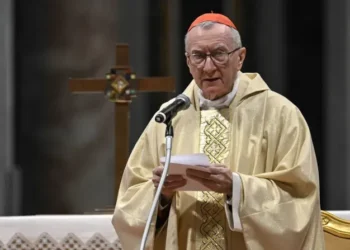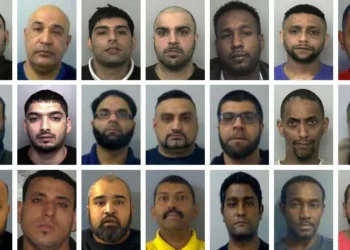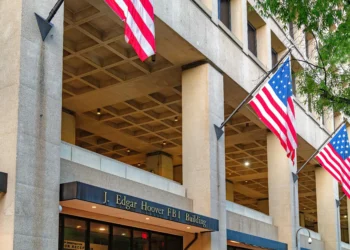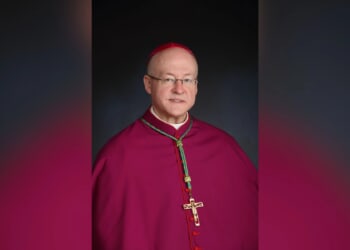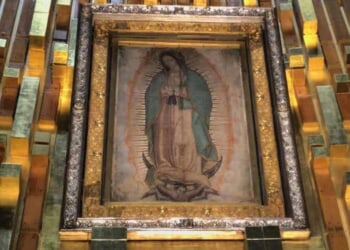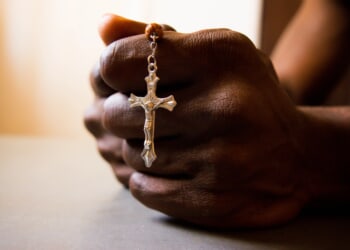CNA Staff, Sep 29, 2025 /
18:43 pm
Bishop Michael Martin of the Diocese of Charlotte, North Carolina, said the Traditional Latin Mass (TLM) must cease at four parishes and will be only be permitted at a chapel beginning Oct. 2.
After delaying the restrictions three months, Martin said in a Sept. 26 letter that the Chapel of the Little Flower in the St. Therese Parish in Mooresville, North Carolina, which was recently renovated by the diocese and can seat just over 350 people, will have two Masses each Sunday and on holy days of obligation, both of which will be said by Father Brandon Jones, the recently appointed chaplain.
The bishop said the chapel is “not a parish, nor is it a parish-like community being formed for those who desire to celebrate the TLM.”
Brian Williams, a leader of Charlotte Latin Mass attendees since 2009, told CNA there were nearly 700 people at Sunday’s extraordinary form Mass at St. Ann’s, his parish and what he called the “flagship” Latin Mass parish in the diocese, and more than 500 at St. Thomas Aquinas parish.
Recognizing that the chapel is too small to accommodate all the regular attendees of the TLM, and that many will now have to drive long distances to reach the chapel, Martin encouraged all those attending extraordinary form Masses at the four parishes to continue attending those parishes’ ordinary form Masses and to view the chapel as a shrine chapel “that you might visit for Mass on occasion.”
He expressed his understanding of the possible grief faced by the TLM attendees, saying he has “listened to your stories of faithfulness and the ways the TLM has enriched your spiritual journeys.”
Martin said he prays members of the TLM community “will be open to [the] opportunity” for grace that “faithfulness to the discipline of the Church” can bring, acknowledging the “uncertainty” many may experience because of the restrictions.
The restriction of the extraordinary form of the Mass to the Little Flower Chapel is the result of the tighter regulation of the TLM initiated by Pope Francis in his 2021 motu proprio Traditionis Custodes, which brought about a marked change from Pope Benedict XVI’s more welcoming approach to the extraordinary form communities in his 2007 motu proprio Summorum Pontificum.
Williams said members of the community are “sad, angry, reluctant, resigned, and everything in between” over the changes.
“Everything flows out of the Mass,” Williams said. “From there you get the different ministries: St. Vincent de Paul, children’s faith formation, OCIA, etc. Forcing us away from our parishes weakens the community altogether and weakens the parishes we’ve left behind because we’re not part of it fully.”
Williams told CNA that of the large number of seminarians in the Charlotte Diocese — at least 50% — have come from the parishes with a Latin mass or which previously had one. There are so many boys interested in the priesthood that a minor seminary has been created in the diocese.
He said from the TLM community at St. Ann’s Parish alone, there are nine young men in various stages of seminarian formation in the past seven years.
“This Mass, this parish has created vocations,” Williams said.
Addressing the issue of unity, which has been used by those restricting the TLM, he pointed out that most people he knows who attend it “absolutely believe in the validity of the novus ordo Mass.”
He credited the tremendous growth in the TLM community in recent years, however, to “a level of reverence and beauty that helps them recognize the timeless aspect of the liturgy.”
The Latin Mass community is an extremely “welcoming” community that has “really thrived organically,” Williams said. It attracts a diverse and growing number of people: young families, single people, a variety of ethnic groups, “women who veil, and some who don’t.”
(Story continues below)
Subscribe to our daily newsletter
Williams, who recently appeared on EWTN’s The World Over to discuss the TLM in Charlotte, said members of the TLM communities are experiencing the restrictions as “a lot of coercion. It all seems very strategic, like they’re setting up this chapel not to succeed, and for the parishes not to succeed.”
“Why is going to the Latin Mass a bad thing? It’s no different from the Ordinariate, or Byzantine, or any other rite. It’s all still Catholic. No one is threatened by them,” he said.
Williams told CNA that the previous Charlotte bishop, Peter Jugis, requested and received a two-year dispensation from Francis’ restrictions in 2023. He retired in 2024 and was succeeded by Martin.
Williams said he and other members of the TLM community are still hopeful that Pope Leo XIV’s pontificate will be more welcoming of the TLM and that things can change, citing a post on X on Sept. 29 showing a priest at the St. Michael’s chapel in St. Peter’s Basilica saying the Mass in the extraordinary form, as well as the recent granting of an exemption to the restrictions imposed by Traditionis Custodes in the San Angelo Diocese in Texas, the first exemption granted under the new pontificate.
The Diocese of Charlotte did not immediately reply to a request for comment.

